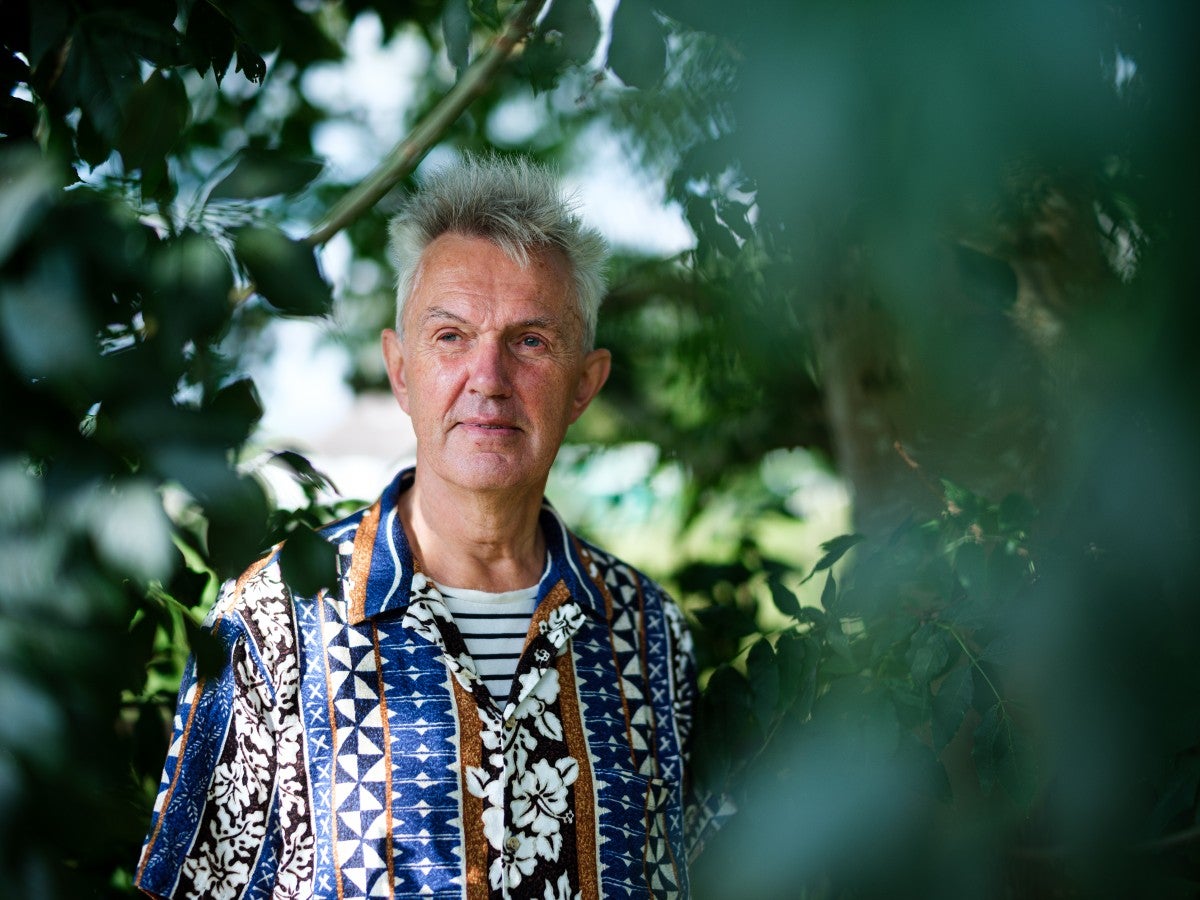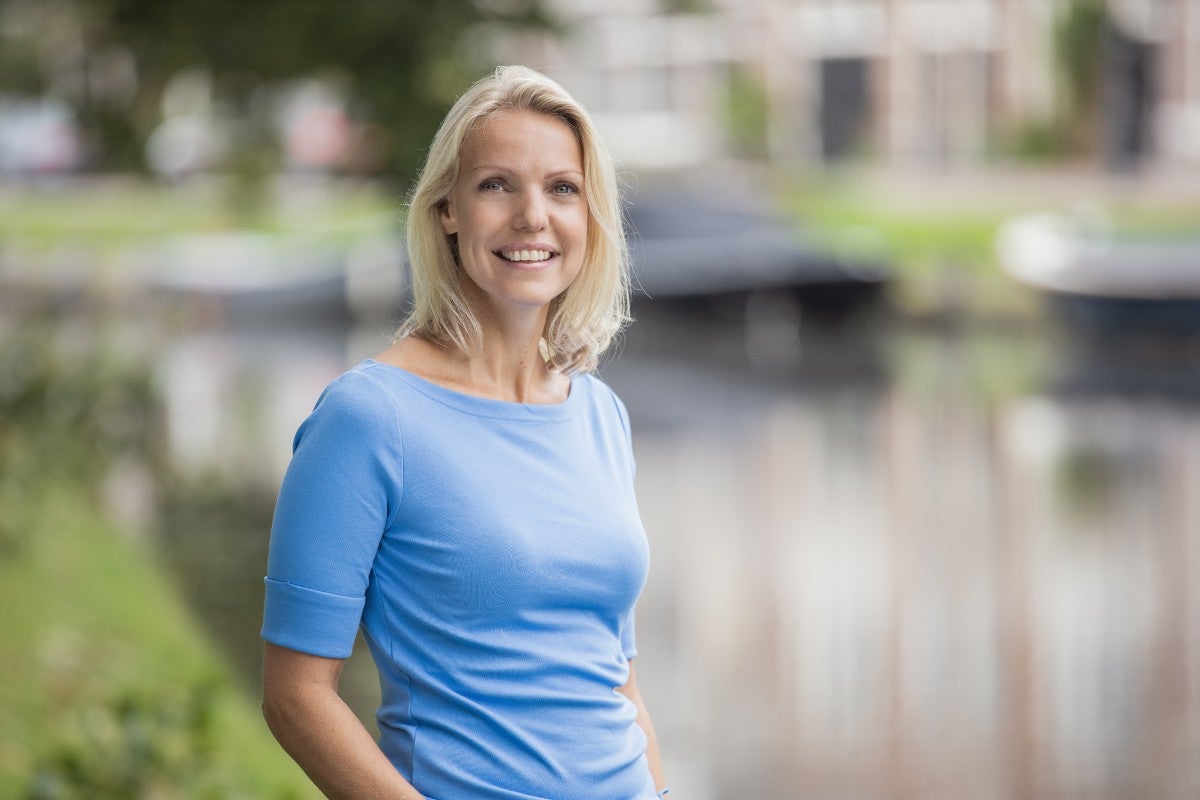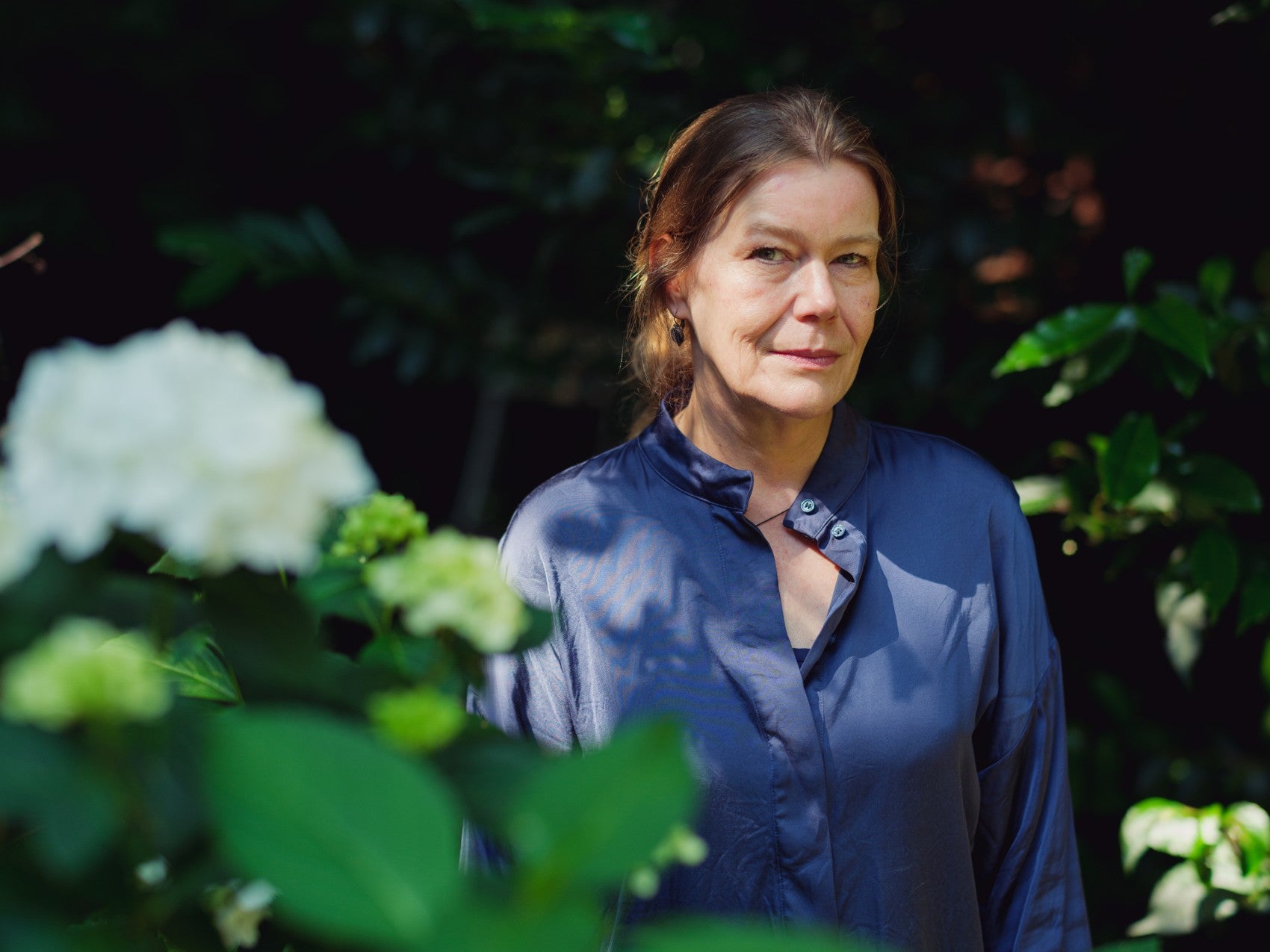Nadia Bouras studied history at VU Amsterdam. We speak to her about her fear of failure during her student years, her goal to shift the perception of the ‘pitiful guest worker,’ and the threats she faces.
On a sunny autumn day, we meet Bouras (41) in Amsterdam's Rivierenbuurt. It’s the place where she attended an Arabic school as a young girl, founded by a pastor and his wife. „Those two actually appreciated being different,” she says. „Something we could certainly use today.”
„By chance, I recently had to be at VU Amsterdam, and I was overcome by a wave of nostalgia,” Bouras begins. „Though at first, I really struggled to find my footing there.”
What made you feel out of place at VU Amsterdam initially?
„I think it’s called ‘first-generation student issues’ now. I thought university would just be an extension of high school, which I handled with ease. Sure, you can neatly attend your lectures and go home, but the idea is also that you feel some kind of connection with the academic setting and atmosphere. What are the norms? Should I join a student association, and if so, which one? It felt as if others understood a certain code, and I was the only one who didn’t. But since I couldn’t put my finger on it, I couldn’t talk to anyone about it."
„In my first year, I developed a fear of failure. During the first exam week, I had to take my driving test, and against all expectations, I didn’t pass. That really shook my confidence, even at university. When cycling and seeing the university building in the distance, I’d already feel my heart racing. Oddly enough, I scored high grades, but I’d study at home, crying over my books. I felt something needed to change, yet giving up didn’t feel like an option. Then I decided: I’ll study in America for a semester, something I’d dreamed of as a child. Paradoxical, but I knew: I need to leave."
It sounds like a big step to leave for the other side of the world on your own in that state.
„You have no idea. For the first few weeks, I was crying on the phone to home. I had to go to a phone booth with an international calling card. It was terribly confronting at first. But over time, I rediscovered myself because I had to do everything alone in a completely different context. It was as if I could reinvent myself."
„The further you are from home, the more you’re faced with the question: who am I, really? In high school, I rejected my Moroccan identity—I didn’t want to be different from my white friends—but in America, I was confronted with it. I’d answer ‘the Netherlands’ when people asked where I was really from, but then I’d be addressed in Spanish."
„I studied at a university in New Jersey, and on campus, I was confronted with racial segregation. Every day, a bus full of Black Americans arrived who worked in the cafeteria or bookstores, while white Americans were managers."
„My roommate had a television, and one day I joined her and her friends watching the news. Bush was giving a speech where he issued Saddam Hussein an ultimatum and threatened to bomb otherwise. The others cheered, and I stood there thinking: the people who’ll be bombed look like me. They’re Arabs, they’re Muslims."
„On weekends, I’d take the bus to New York, where I’d go to the Virgin Megastore in Times Square to listen to Arabic music. I wanted to hear the music from home. This search led me to my Moroccan identity and heritage. It was in America that I discovered that I am Moroccan."
How was it to return to VU Amsterdam?
„After New York, I returned as a different person. Confident. Even at university, it felt like someone had opened a door. Suddenly, there were many more Moroccan students, and I joined an emerging association for Moroccan students. My thesis supervisor said something to me that has always stayed with me: ‘If you don’t write about yourself, who will?’ I thought: so I can study that instead of the French Revolution. Finally, I knew again why I’d chosen to study history."
When I walked out the door for this interview, I picked up Het Parool from the doormat, with a headline that read: ‘Politics is a Driver for Islamophobia.’ How do you see the future of diversity and inclusion in the Netherlands?
„New studies show that discrimination against Muslims is becoming more normalised. That seems evident when you see that the largest party in the Netherlands has Islamophobia as a central point. We really need to wake up together. The PVV not only dominates political debate but now also policy. That affects all of us. After the election results, I got calls asking, ‘Are you okay?’ as if this problem only affects Moroccans or Muslims. No, this is a societal problem. What are we going to do together now that it turns out so many people cast a racist vote?"
In your book, Een Klas Apart, you say you worry about your daughters and want to protect them from feeling like they don’t belong - something you experienced yourself. How do you feel about that now?
„It only gets worse as my children get older and understand what’s going on. I remember that during the last election, they learned who Wilders is and what he stands for. My eldest daughter was very shocked by that clip in which he said, ‘fewer Moroccans,’ which was endlessly repeated on children’s news. ‘Do we have to leave then?’ she asked at the kitchen table. ‘And does grandma have to go back to Morocco?’ Mind you, this is our reality, which still exists in our home, even when we turn off the TV."
As a historian, you’re not only focused on the past but also strongly involved in social debate. Do you pay a price for that?
„Yes, definitely. In the past, for example, I found a sticker from Vizier op Links (a Dutch far-right platform, editor’s note) on my front door. It was very frightening. It’s a way of saying, ‘We know where you live.’ My inbox fills up with nasty messages, which I just delete. But when people come to your home, that really crosses a line."
„What really makes me furious is that people have recently started bombarding my employer, Leiden University, with complaint letters. These aren’t anonymous trolls but supposedly respectable people writing under their own names. The letters are about my tone, my views, and even questioning whether I’m suitable to teach students. I find it despicable behaviour, reminiscent of Nazi sympathisers. It implies a moral superiority, that you can email my boss and think there’ll be consequences."
„I must admit that this kind of intimidation has deeply affected me. The first time I was on the train back to Leiden after the summer, my heart started pounding. I’ve always felt so at home at the university, but suddenly I wondered: what does the university think of me now? Should I moderate my tone?"
And did you moderate your tone?
„Absolutely not. I’m doing nothing wrong. Yes, I’m sometimes sharp, but that’s part of the debate. My boss once said, ‘Maybe you should leave Twitter,’ but no, I won’t be chased away. It would undermine academic debate if I did. Unfortunately, many young academics are afraid to speak out because of the consequences, and I understand that. But we must protect the academic debate, and I will keep doing that."
What fascinates you about migration?
„I am a product of migration, so in large part, it’s also about myself. I find the legacy of migration especially interesting: it continues to affect so many generations in countless ways."
In your research on Moroccan guest workers, you discovered that the image of them as exploited victims isn’t accurate.
„Indeed, there’s a persistent image that Moroccan guest workers were brought to the Netherlands by the Dutch government and then discarded. Only a small number of men were actually recruited. Most Moroccan guest workers came on their own initiative. They weren’t victims of capitalism or exploitation but rather adventurers looking for better economic opportunities. This insight challenges the dominant image of the ‘pitiful’ guest worker. The second generation may be angry, but it’s important to acknowledge that our parents weren’t victims, and neither are we."
You also researched the role of female migrants. What changed when these men lost their jobs in the 1980s?
„The jobs traditionally held by guest workers disappeared from the Netherlands. Factories closed, heavy industry moved, and there was little work for men without schooling. Meanwhile, women started working as cleaners or nannies. Many women became breadwinners, which had an empowering effect. While some men considered returning to Morocco, women felt more rooted in the Netherlands. Going back to Morocco often meant returning to traditional gender roles."
„My father, who worked as a caretaker in a nursing home, fortunately kept his job, but what changed was that my mother also started working, as a cook in the same home. She was the only working mother at the school gate and initially kept it a secret, afraid of other mothers’ judgment. When it came out, it turned out to be inspiring, and other mothers said they wanted to do the same."
You wrote the book Een Klas Apart about the Arabic school in Amsterdam, founded out of compassion by a pastor and his wife. What can we learn from them today?
„When the pastor couple, Rolf and Georgine Boiten, saw Moroccan guest workers appearing in the city centre in the 1970s and, not much later, their families too, they decided to set up a shelter and later the school named Bouschrâ. The school had plenty of room for Arabic culture and language. For them, it was always about the freedom to be who you are. They appreciated being different. Something we could really use today."
„When I visited the couple for the first time as a starting point for my research, they were moved that a former pupil had come by after so many years. Recently, after Georgine had already passed away, Rolf also passed, and I attended his funeral. There, I felt strongly that the least I could do is to continue to share their message."
„Retelling the story of the school is precisely why I wanted to study history: to tell the stories that have barely been heard and give them a place in our shared history. For many people with a migration background, the sense of truly belonging to this country and its history is often missing. By making traces of the past visible, you create a connection not only with the present but also with what preceded it. I hope people feel more rooted in our shared history. If I can contribute to that even a little, that’s already a huge win for me."





